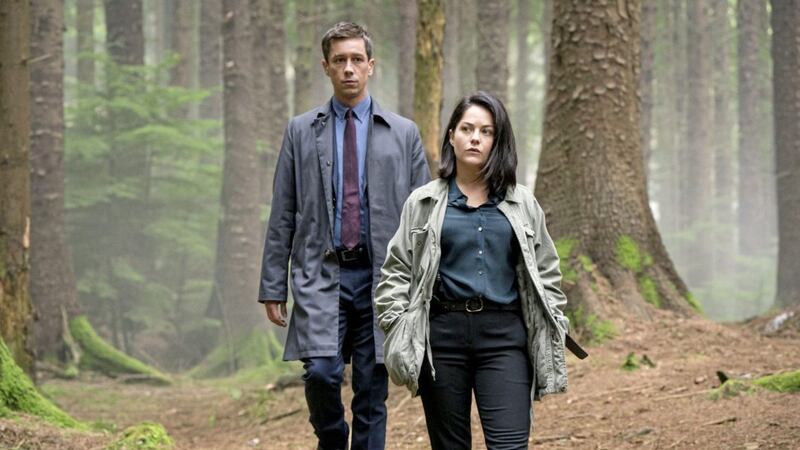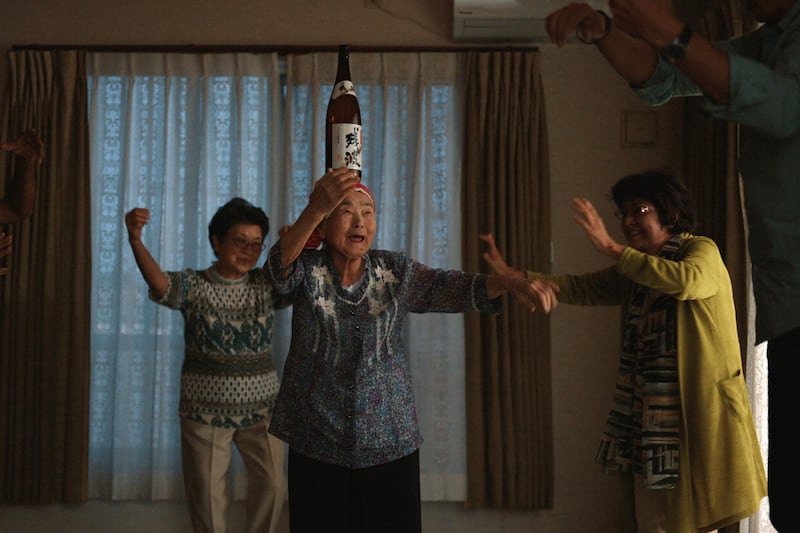Dublin Murders, BBC 1, Monday and Tuesday at 9pm
You need a couch partner to watch Dublin Murders.
It’s a very dense plot and the kind of drama where you regularly need reassurance that you understand what’s going on.
“Who’s he? … have we seen her before?” is as regular as the tip of the bottle of wine.
The thriller opens with a man having a breakdown in a basement, watched by an impassive woman.
“What if the killed are the lucky ones? The chosen. And the rest of us aren’t lucky at all?” he asks through sobs.
Then we flash back to the beginning of the story and the murder of a 13-year-old girl in a forest in Dublin.
The couple from the basement, Garda detectives Rob Riley (Killian Scott) and Cassie Maddox (Sarah Greene), find themselves in charge of the murder investigation and we begin to find out just why Rob may have been so upset in the opening scene.
It turns out that as an 11-year-old he went missing in the same forest in the 1980s. He was found after a week but his two young friends remain missing, presumed dead, more than 20 years later.
Rob, then called Adam, could not remember what happened to him in the week he was missing. He was found with his feet covered in blood, although not his own, and with his t-shirt slashed.
In trauma and facing desperate pleas for information from the parents of his missing friends, it was decided he needed a new start. Thus, he was sent to boarding school in England and started using his middle name Rob.
Now he was back in Dublin working as a cop with an English accent and no one has joined the dots.
Cassie has also got some secrets, although not from her detective partner.
She has previously lived under another name and gets a sinister visit from a previous acquaintance warning her not to attempt to return to her old life.
It seems logical then, that at first Rob and Cassie agree that they will excuse themselves from the Katy Devlin murder investigation. It would be improper for Rob to investigate a crime which may be linked to his own disappearance, Cassie argues.
But viewers knew that was never going to happen and sub-plots continue to appear.
Who is the homeless man inviting death on the roads and daubing “he rises … he rises” on billboards?
Is Katy’s father involved in his daughter’s own murder? We discover that as a teenager he was questioned about the disappearance of Adam and his friends and he leads a campaign against plans to build a motorway through the forest. Is he afraid they will find bodies?
Who is the businessman threatening the homeless guy not to reveal the secrets that appear to be torturing him?
It’s set in Dublin and filmed mostly in Belfast, but Dublin Murders could be set anywhere in the world of TV crime drama.
This doesn’t take from the quality, just remember to bring a viewing partner or a notebook.
***
Hindus - Do We Have A Caste Problem? BBC 1, Sunday at 10.30pm
The simple answer to that is ‘yes’, but then all societies have hierarchies.
The problem with the Hindu system is the rigidity of its five main class boundaries from the Brahamins at the top, to the bottom caste which used to be called ‘untouchables.’
You are born into a caste, marry in a caste and your children and their children remain in that caste.
What this fascinating programme asked was how much this has translated to Indians living in Britain.
Unfortunately, the answer was that it partially had.









